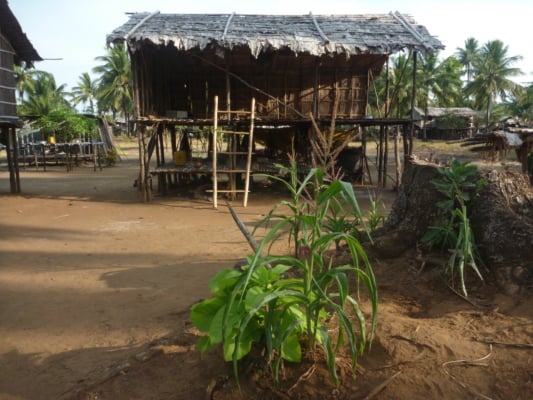From the early 2000s, normative approaches of international aid programs with their externally-led technical solutions have been increasingly called into question by progressive development practitioners and think tanks, such as the Overseas Development Institute, the Thinking and Working Politically Community of Practice, and the Centre for International Development at Harvard University. These voices have consistently underscored the centrality of local leadership, local politics, and ‘rules of the game’ of local institutions as the deciding drivers in whether constructive nation-building occurs or whether dysfunctional governance and poor social, economic, and environmental indicators persist.
Despite these calls and the growing evidence that it is the influence of local leaders and coalitions that either maintains or disrupts the structures of injustice and non-reform within sovereign states, donors continue to invest in modalities based on false technical capacity premises, rather than a fundamental lack of developmental leadership and inclusive power structures.
Such approaches, which do not recognise internal power dynamics as the main factor behind poor development outcomes – not a lack of technical expertise and financial resources – are counterproductive to Western donors’ stated objectives of inclusive prosperity within a rules-based order. There is a pressing need to acknowledge that these aims will remain largely unobtainable under the governance status quo of some recipient aid countries, where elitist cronyism and non-representational institutions and leadership prevail.
But there are examples of development practice, funded by external donors, that are deviating from convention. They are using alternative strategies to support reformist leadership that contests the hidden networks of negative power and incentives to reach national development goals. And these provide valuable insights and lessons for broader application.
1. Differentiate between leaders of the status quo and reformist leaders
While there may be broad-based consensus that what is needed is better leadership and better governance, aid programs conventionally address these within the prevailing workings of power. The standard aid response is to ‘capacity build’ existing leaders, many of whom are themselves part of the systems of elitism and corruption, and who have a deeply vested interest in things remaining exactly as they are.
These representatives of the status quo are frequently the recipients of training and leadership programs funded by well-meaning donors; it is they who appear on the ‘lists of people consulted’ on program design documents; and it is they who are the prime interlocutors in the high-level bilateral meetings to determine significant development cooperation decisions. Yet in this way, external assistance can inadvertently be perpetuating that which it is seeking to change.
It is therefore important to heed the clear implication of robust political economy analyses of countries with poor governance and development outcomes; reformist drivers of change – those who deeply care about the well-being of their communities and who seek social justice for their country – will rarely hold formal authority and be in positions of power in contexts of endemic corruption. Development programs consequently need to be informed by an understanding of the vast difference that can exist between overt, legitimised leaders and covert, oftentimes embryonic, developmental leaders, whose status is not necessarily reflected in their formal positionality.
2. Go beyond these positional ‘usual suspects’ to seek out where the green shoots of reformist leadership lie
This is no easy task, however. As the organisational psychologist, Chamarro-Premuzic notes in his book, Why Do So Many Incompetent Men become Leaders, we are biased to connote confidence, dominance, and performance charisma with good leadership. But the qualities that define developmental leaders motivated to serve and deliver outcomes for others – humility, sensitivity, altruism, collaboration – do not correlate with these, and identifying those who possess them takes much more care and energy. These leaders are not always easily spotted; they are not practised in self-serving promotion, but are instead often hidden in communities, churches, schools, and civil society organisations, focused on the empowerment and elevation of others. They will often be reluctant to be associated with the negative models of formal and institutional leadership prevalent around them. And because of this, their assuming of any formal leadership position of power will sometimes require a high degree of persuasion and support. This is where the external development intervention can play a useful role – to be an eye of perspective and a bolster of encouragement that assists the nascent developmental leader to exercise their potential in a sphere of increased impact.
3. Build up the symbolic capital of developmental leaders who lack access to power sources within dominant political systems
As documented in case studies of non-conventional leaders who have achieved positions of power, symbolic capital is needed that can be mobilised and translated into institutional and political spheres. However, in contexts of weak governance this is difficult to achieve for those who oppose the status quo; they will tend to shy away from the everyday mechanisms of bribery, complicity and forms of wantokism which can entrench inequalities.
There is therefore opportunity for external interventions to assist developmental leaders to amass their symbolic capital in ways that do not contravene their values-driven motives. This includes supporting them to come together as coalitions of change and providing them with public diplomacy platforms to demonstrate alternative models of what good governance and effective service delivery can look like without ethical compromise. In these contexts, external actors can help redress the balance of who has the capital necessary for local influence and legitimacy, and contribute to building demand for reform.
Because aid programs have enormous amounts of symbolic capital at their disposal. They are building roads, providing small grants, training teachers, delivering vaccines. However, many aid programs are often so focused on proclaiming that “we built the roads, we delivered the vaccines, we built the capacity” that they squander the precious capital that could be attributed to the developmental leaders who should be at the forefront of these activities. But if aid programs shifted to working intentionally in the shadows, in a role more resembling that of a campaign manager rather than star player, the positive results of programs could be used to increase reformists’ status and influence in challenging the dominant norms and practices of power.
Developmental leaders who build influential coalitions of reform are the essential factor in strong governance and positive social change. Aid programs need to choose whether they will help or hinder their progress.










